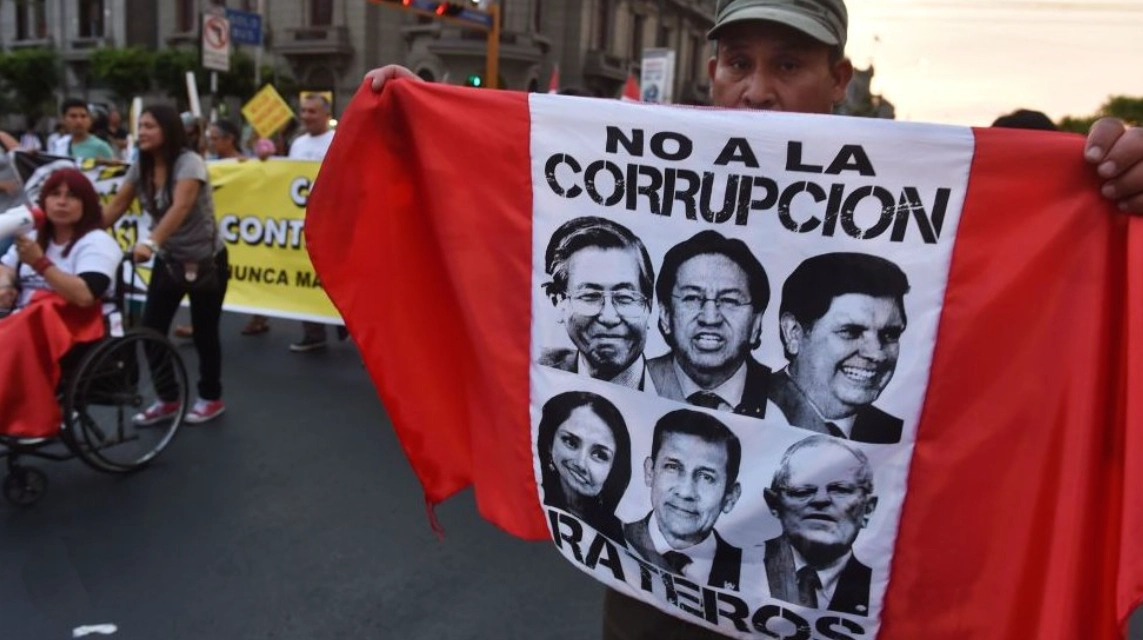One of the most recurrent topics in the Latin American media is the accusations of corruption against political actors who take advantage of the privileged position they hold to incur in private appropriation of public funds or put them at the service of their political parties or allies’ needs.
However, for this to happen, it is necessary that this type of illegal trick constitute a scandal itself. That is to say, that has through its dissemination an impact on the interests of the corrupt or corrupting agent.
Hence, in democratic societies, the role of the media is strategic in order to know the “dirty” arrangements that go against the institutional logic of transparency and accountability, as well as the current system of values.
It is well known that the corruption of political agents has a large captive market, both because of their low rating on the evaluation scale and because of the morbid curiosity they arouse in segments of the citizenry.
Thus, in Latin America, the major media outlets have on their payroll journalists who investigate corruption cases, so they constantly offer their readers this input for making political and even economic decisions when economic actors are involved in corruption complicity.
In other words, if the denunciation is an input for the citizen to make decisions, it turns the media into a powerful instrument against the political class that has to deal with the statement that “politics is the art of the possible, not the desirable”, which frequently leads this type of actor to jump, by convenience or necessity, to the other side of the narrow limits of legality.
Then, the public conversation in our countries – even in the so-called consolidated democracies – is constantly mediated by the “political scandal of the week”. Given that it is a product that sells well in societies marked by social inequalities and, fueled so these inequalities demand punishment for the guilty in principle through media exposure.
It is very common that when a political actor is involved in a corruption case, they are first judged in the media and, when the case comes to court, they are subjected to investigation and eventually tried and sentenced with pecuniary or corporal punishment.
A bird’s eye view of what is happening today in the eight columns of the main printed media, in the conversation of the digital media and in the social networks, clearly shows how political scandals are what sells the most in media that are not necessarily thought in terms of relations between the ruling parties and the opposition. Although, undoubtedly, any scandal causes benefits and damage in the political arena.
Mexico, for example, is currently in the midst of a scandal that originated in the seat of Executive Power when President López Obrador, in an erratic act, created who will surely be the presidential candidate in the elections of the summer of 2024. And now, he himself, by the multiple means at his disposal, seeks to lower Senator Xóchilt Gálvez from the electoral preferences.
In the United States, the scandal of the seizure of the Capitol by the Trump supporters and the private appropriation of classified official information shakes today the institutions of that country and reaches the succession process that will take place at the end of 2024.
In France, the police violence scandal, which ended the life of a young Arab, provoked large mobilizations that generated a serious governance problem and called into question the public security system.
In Argentina, the trials for the corruption scandals of former president Cristina Kirchner and the attempt to dismiss four ministers of the Constitutional Court have created great political tension that adds to the problems derived from the devaluation and hyperinflation that has large unions and community organizations in the streets protesting and demanding “bread for all”.
In Brazil, the electoral defeat of Jair Bolsonaro is largely explained by the scandals of corruption and social marginalization that the team of the current president Lula da Silva was able to exploit effectively.
In short, political scandals that are the result of corrupt acts and changes in programmatic positions are catalysts of political representation that put everyone in their place. And that means a positive or negative effect, depending on how it is seen in each country and by each power group.
*Translated from Spanish by Janaína Ruviaro da Silva











